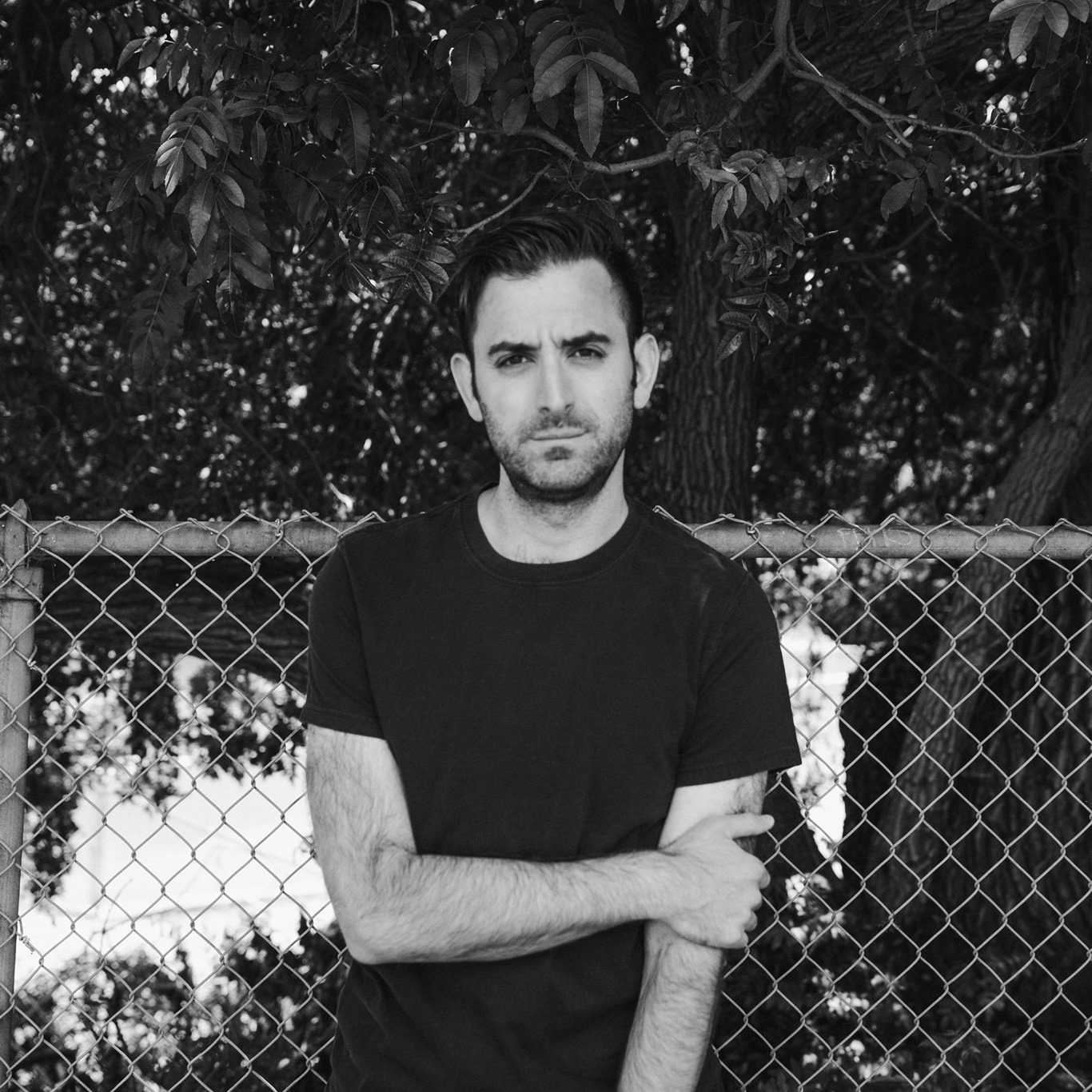With music, there begins the dream like a seed that gets planted in soil. Musicians start together with the base. There’s a meager beginning of small shows, trying to get your music heard with every inviting ear, and the all-out grind. “Can I do this? Will I make it?” It’s like a special group that has that one breakthrough to bright lights and a place in many people’s daily routine. Whether it be a work playlist or a morning mantra.
‘Legendary’ starts with a synchronizing base of claps and drums. It gets to you like a marching band before a football player takes the field on a Sunday afternoon. 50 million album streams later, Cleveland, Ohio’s own Welshly Arms has released their new album, No Place Is Home. Now, there’s a duality to the grind. Once you get to those bright lights, will you have enough energy to see down the mountaintop? The band approaches the new album with a sense of zeal and confidence with songs like “Indestructible” and “Down to the River.” Mixing genres like gospel, blues, and indie rock, there’s a sound here that can only be melded by time. Time can break us, but it can also make us stronger and wiser.
We caught up with lead singer/guitarist Sam Getz and drummer Mikey Gould to discuss their newest album, their inspirations behind it, and the long road to this point among other topics.
Substream: I wanted to start off discussing the title, “No Place Is Home.” For musicians, it’s your dream to reach this life, but it’s very taxing with touring home and internationally. To me, the title is very telling. How do you balance to tour and love?
Sam Getz: Yea, that’s a good question, man. You’re exactly right with the title and tying that in. The way I’ve been thinking with the title is that it has a couple different levels and meanings to it. One is very surface level of that constant grind of the road and never really settling in anywhere. That’s been our life for the past year. We took the line from the song, ‘Sanctuary,’ which is the first song we released off this record. It’s a line that happens right before each chorus, “no place is home/but times are changing.”
It might feel like you’re displaced or lost. Maybe hurting or uncomfortable in your situation, but there’s always going to be that flip. For me, it’s an important message that the song has. There’s a reoccurring theme on the record of feeling a little lost in the current political environment. Mostly in our own country, but there’s a lot of unrest in many of the other places that we’ve been to.
It’s a strange political time. There’s a big shift in the..kinda been a little more hateful, elitist, and nationalist. It’s a big thing that’s been weighing on me. There’s a lot of people that feel like they don’t belong somewhere or have their place. Even within that, there’s always a place. It could be a relationship with someone. We have each other on the road, so we do have one of our families. Even though we may not be with one of our “families” back home, we still have this second family as a band. That’s kind of what the theme is. It threads in and out of the whole album.
S: My follow up question was going to be about the song, “Sanctuary.” It’s the first song off the record that serves as a powerful statement. This particular lyric stands out to me: “If the spark in your eye goes out/I can be your glow/Bringing you home.” You touched on the political discourse. Was it important to start the album off with this song that has a unifying message?
Sam: Yea, I think it was kind of a no-brainer for us in that way. It really does set the tone for this whole record. I also think musically it sets a tone because there’s a spiritual undertone and threads in and out of the record. It’s more of an agnostic spirituality, but it’s in there. ‘Sanctuary’ feels like it could be sung by a choir. I really like that to lead of the record.
It was also one of the easiest songs to record and put on. It just came out the way it came out. For a lot of reasons, it just felt like the right lead-off single. Just felt like it was a big representation of what was going to come on the rest of the record.
Substream: You guys rented a 19th century house to record this album. Different parts were recorded in different rooms. If you listen to this album from front to back, it gives you that big room feeling. Either a big church or concert hall. How was the recording process for this album verses the EPs or your first self-titled album?
Sam: It was a lot different, mainly because of the timing with all the traveling we were doing. We did our self-titled LP in 2015, so it’s been some time. When we recorded that record, we did it all in one big lump. We rented a house about an hour away from where we lived in Cleveland, Ohio. It was out in this isolated little area right in Lake Erie. We went in the middle of winter. It was a place that most people go in the summer and we went out in the winter. It was kind of desolate and quiet. We would go out there every weekend and we did that for three months until we had our record done.
We would tweak songs and write a little bit more during the week, then track with the band. Now with this record, it was like, “we’re home for two days, let’s cut drums on two of these songs that are ready to roll.” Then the next two days when we were home, we would put a bunch of pianos down. It was much different process than what we were used to in the past. The one thing that’s the same is we’ve always done our records on our own. We’ve produced them on our own. Jimmy, our bass player, does all our engineering and mixing of the records. So, we still have the same band, same singers, same engineer. We have the same overall vision of who we are and what we want to sound like.
The place is really cool. It was this old house. There was a room where we had a bunch of drums that we set up and used. We had a room that we had a bunch of pianos and organs. Room full of old guitars and amps. It was a lot of full for us to have at our disposal.
Substream: From the EPs to now, there’s a real sense of where you guys wanted to go. Down the road, would the band consider working with an outside producer?
Mikey Gould: I know in the past that we’ve talked about it and we’ve always been receptive to bringing someone in. I think, especially when we released ‘Legendary,’ our first single that did something and made all the touring and traveling possible. That for us was just a major shift and a big dynamic in our sound. I do see what you’re saying with the growing with each record and we’ve all grown as musicians.
Just from a production standpoint, watching Jimmy (Weaver) be more assertive and really go after what he wants when it comes to production. Trying to get a certain tone or pushing someone like me. Say we want to get a drum part. Just making sure he is getting the best from me. I feel like each record, we’ve just grown more and more. I don’t know at this point. Maybe the next one, we would bring somebody in.
Sam: There are some producers that we talk about all the time as being a “dream” scenario for us. There’s a couple people that we would love to work with if the timing was right. I think we have a responsibility to keep growing and get to that place where we can work with our dream list of people, you know.
Substream: Now “Down to The River” is one of my favorite songs off the album. Bri’s (Bryant) vocals start with this gospel part and then there’s a big jam in the middle and end. There’s a gospel and blues context to the album, but I also hear a little R&B and alternative rock. How do you go about mixing all these influences and making it feel effortless?
Sam: Thanks for pointing that out. That song is a really good example of being all over the place with one song. You can hear lots of different influences going on. We have never once had a meeting where we were “what do we want to sound like? what genre are we going to be? what lane are we going to stick in?”
I find that we are fortunate that we don’t have a label that is forcing us in some lane or a manager that has an idea of what he wants us to sound like. We have a lot of freedom to do what we do. Everybody comes from different backgrounds musically. Also, most of us shift up what we are listening to. That varies widely, so every day, we come with a different song idea. God knows what it’s going to sound like.
‘Down to The River’ started as a soul song and once we added rock-and-roll guitars and drums on there, it shifted a little indie rock. It’s a lot of fun for us to do it that way. Sometimes, we might have a bluesy song, but we don’t hear a blues song. We hear something more lo-fi or indie.
Substream: There are a couple themes in the album, but one I wanted to touch on was two sides of love. There’s “Locked” where you are infatuated with someone. “Indestructible” speaks to a woman with an unattainable love. When writing this album, was it important to show the two sides of the coin to love? There’s a honeymoon period and also, there’s this crushing feeling that you may not get what you want.
Sam: That’s a really cool perspective there. I would say that it wasn’t intentional. All this stuff is coming from a human place. At different times, different songs come out. It depends on what mood you’re in or what’s on the mind. I do most of the lyrics, but I don’t always use my experiences as the catalyst. A lot of times, it might be the other guys in the band or Bri. It could be someone else that’s around us or based on a conversation with one of my buddies. I’m always looking for stuff to inspire and this record definitely has more relational stuff in it then we’ve sung about in the past. It may be second nature to think more about our relationships because we are forced to be away from them a little more.
Substream: ‘Legendary’ and ‘Love of the Game’ both come off to me as a rally, not only for the band, but also other musicians. A “we’ve pushed through and kept fighting” feeling. There is a permeating feeling of confidence within this album. Do you all feel stronger now because of where you’ve all been?
Sam: First of all, I loved that you picked up on that. ‘Legendary’ especially. I can see how you can get that from ‘Love of the Game’. People kinda always think sports, sports, sports. Although, I love that and the parallels of what musicians go through to try to make it in the music world, it’s parallel to what an athlete has to do. I’m glad you pointed it out that way because these songs, although they work great for an athlete for sports.
For us, it’s about our musical journey, hardships and struggles. It’s also not letting negativity – maybe it’s a fan’s comment on Youtube or something, slow you down. Or a label turning you down. Or a promoter not wanting to book your show. All the things that could be really tough as you are getting your band going, those are about overcoming that.
Second, I think we do. I gotta say, there was a turning point around the release of ‘Legendary.’ That song, we had been knocking on doors and trying to get our music into the hands of more people as we could. All of a sudden, that song kicked the door down. It got our music into Germany and other places overseas. Definitely also broadened our audience in the states. It does feel like we were able to get over that initial hump. Although, it doesn’t feel like the last one. There’s this constant struggle to be creative, make new music, and tour enough so you can reach new fans. Songs like that are fun to play because it reminds you of what’s on the other side.
Substream: You have a tour coming up with 30 Seconds to Mars and I think with how the album sounds, that would be the perfect tour for Welshly Arms. As they have grown to a big/stadium arena rock act, songs on ‘No Place Like Home’ will definitely translate in a live setting. How excited are for that tour?
Sam: We’re stoked. I think one thing that we are excited about is to see how they do it every night. They’ve been at it longer than us and some steps ahead. They are out there doing their show and what they want to do. They have the production behind them and I’m so excited to see how that show happens every night. Also, really excited that they are bringing us out and sharing their fans as a chance to get to play these songs for their audience.













